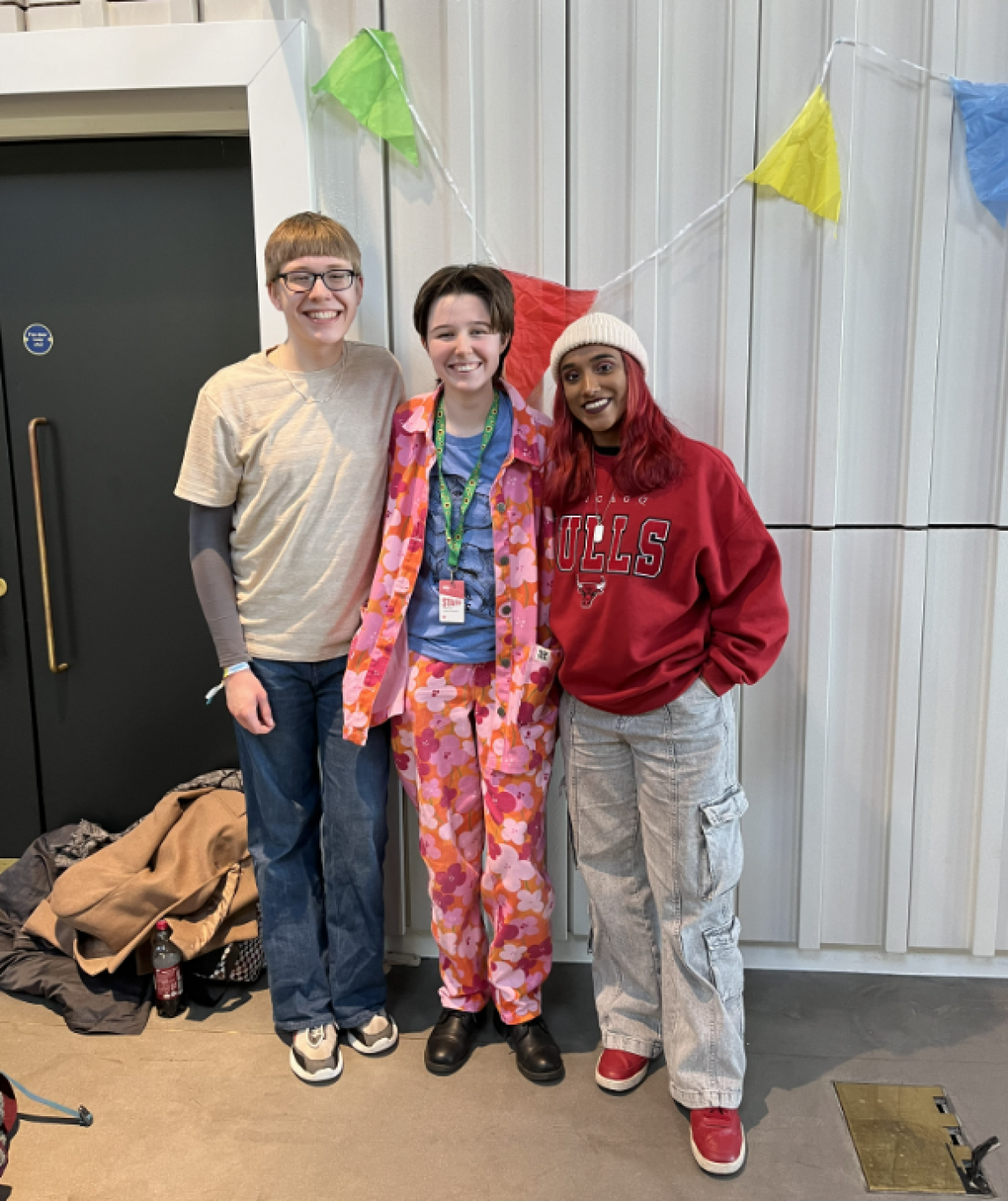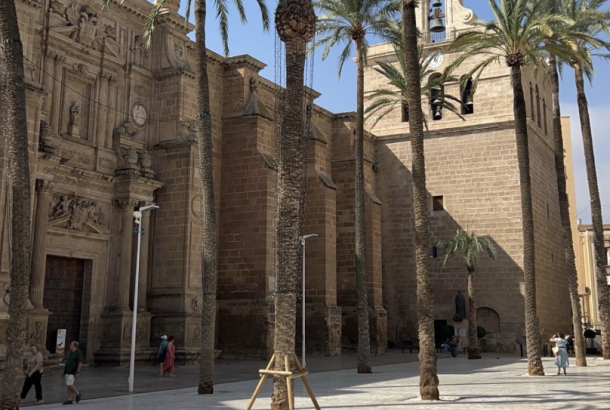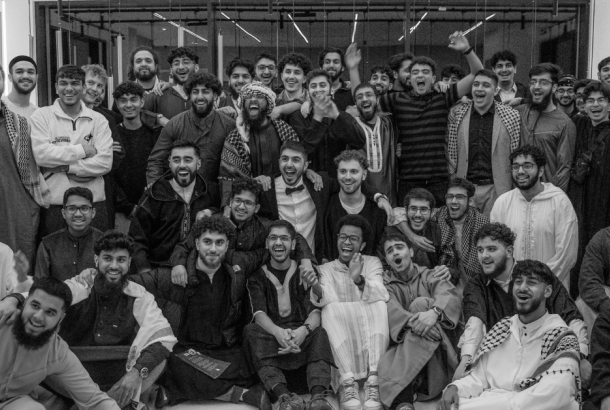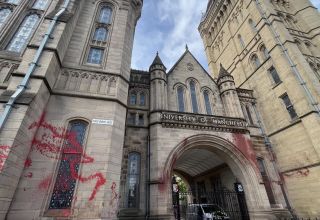Association Chairs: Bringing practical change and a sense of belonging to UOM

The University of Manchester’s Association Chairs are a fairly new addition to the cultural and liberation groups on campus. This year’s second cohort of leaders are utilising their platform and connections to instigate productive change on campus and establish a sense of community within and between the students they represent.
Jing Wang, Multicultural and Diasporan Association Chair, seeks to make his association a place where Multicultural and Diasporan students feel less alone while also recognising their unique and individual journey as third culture kids. While others may feel comfortable fully identifying with a specific cultural or ethnic society on campus, Jing feels that students with diverse backgrounds also need a safe space to be heard and connect with others. He expresses, “We find a sense of belonging with each other, not because of the cultures we grew up in or the way we’ve been brought up, but because of the common experience of moving around.”

As an association chair, Wang can focus on niche changes that benefit the student experience of his community. He is working with the Student Unions’ Research and Insight Team to devise a survey to better understand the concerns and challenges of life on campus as a multicultural and diasporan student. “I’m also working on setting up a panel with diasporan societies to hear their perspectives,” said Wang, expecting a wide range of responses from the panel and survey.
Like Wang, May Kyaw, Asian and Asian British Association Chair, is creating a survey to better understand Asian students’ concerns and challenges regarding language for non-native English speakers. “Sometimes Asian students are scared that their English is not good, so [they] don’t tend to talk to other foreigners or people more fluent in English,” Kyaw reflects.
As a representative, she hopes to boost the confidence of Asian students in their language capabilities through a language program that includes workshops to address students’ academic issues as well as practice communicating in English with native speakers. “Asian students can learn and bond with them and students of different nationalities,” says Kyaw. Kyaw’s work recognizes the importance of language as a means for creating bonds and a sense of inclusivity amongst students.
Creating an inclusionary place on campus for their community is also of utmost importance for Trans Association Chair, Hailey Birch. Birch shares that “Trans people face a lot of specific issues: particularly, around healthcare, transphobia, and entering certain spaces. There are issues that overlap with other queer people, but I think within the SU and UOM, there weren’t many trans specific places. When I first came here, I was looking for that.” They also recognise intersectionality in trans spaces and have expanded their committee to include a Race and Inclusion officer to make the group more inclusive for people of colour and decolonize white trans spaces.
Birch seeks to translate the power of rhetoric on trans issues into practical changes. They emphasise that bringing it back to the practicalities is the best way to fight and win against discriminatory rhetoric. “To make sure that trans people have the practical resources to live their life well, that’s the main thing we want to give to people in the trans association,” said Birch. Their Trans Inclusion Policy was approved through the Union Assembly last Autumn and passed with a 70% vote. It focuses on providing practical support on issues like trans healthcare and including 50% more gender-neutral toilets on campus.
Working with Aisha Akram, Liberation and Wellbeing Officer, and Eden Foxon, the Liberation Coordinator at the SU, allowed Birch to pilot a Gender Expression Fund. Akram shares, “We’ve had just over 100 applications that we’ve given money to, and myself and the liberation coordinator just managed to get funding for the next year as well.” For many trans students, the fund allows them to pay for the gender-affirming items and services that they need to help them feel more comfortable and recognized within their identity.
Having more gender-neutral toilets on campus is another goal for Akram and Birch. Together, they managed to get three additional toilets in Crawford House and the Arthur Lewis and Alan Turing buildings. “We’re trying to get it in the main library [as well], which should be a given, but it’s a very old building so the foundations are hard to get around,” explains Akram.
Akram has also collaborated with Dylan Collins, LGBTQ+ Association Chair, on tailoring counselling and mental health services to LGBTQ+ individuals who want to be more discreet about their identities due to religious, legal, or personal reasons. She is also hoping to work with Wise Dasilva – who is the Black, Black British, Caribbean and African Association Chair – on increasing the number of projects focusing on black heritage students. “We’re working on an access and participation plan with the university that focuses on the gap in attainment between black and white students in academic performance,” states Akram.
Her collaborations speak to the necessity of having Association Chairs as separate roles from officer roles such as hers. “My role covers a wide range of liberation groups, but capacity wise if I was focused on every single liberation group that the association chairs focus on, it would be a disservice to those groups” says Akram, “I wouldn’t want to address these issues half-heartedly and to have an association chair who’s sole focus is on a particular community is really helpful.”
The role of an association chair has been described as a ‘taster’ of LeadMCR by Jing, explaining that “…you can make the changes that you want without the commitment of campaigning and taking a sabbatical year off university.” He shares that the autonomy the role provides is also beneficial as it allows interested students to direct their efforts to what they believe will create the biggest impact in their community. The recruitment process for the 2024-2025 Association Chairs begin this April and roles are set to be filled by next Autumn.
Words by Maya Al Sabeh







